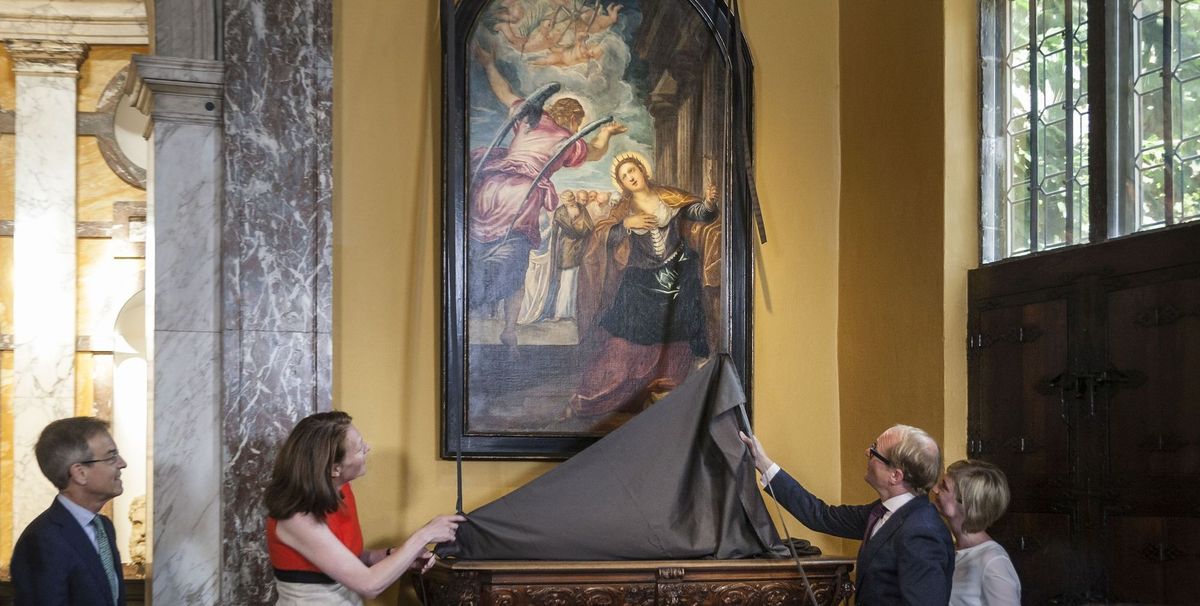For 30 years, David Bowie cherished his altarpiece by Jacopo Tintoretto, even naming his record label after the Venetian painter. But little did Bowie know that beneath the layers of oil was an underdrawing that suggests the work was created earlier than previously thought.
The discovery by the Royal Institute for Cultural Heritage in Brussels, whose technical analysis also revealed the work was painted entirely by the Venetian artist and not by his studio, has prompted plans to return the painting to Venice for the 2019 Biennale. The altarpiece is due to go on show with a group of works by Flemish Old Masters who admired and were influenced by Tintoretto, including Rubens, Van Dyck and Maerten de Vos.
The painting was bought by an unnamed European collector for £155,000 (£191,000 with fees) at Sotheby’s white-glove sale of Bowie’s collection last November. It was immediately announced that the work, now dated 1560–70, would be loaned long-term to the Rubens House in Antwerp, a museum that Bowie loved. The painting is being unveiled there this week (27 June).
The late musician bought the canvas from the London dealer Colnaghi in 1987 and it is the Colnaghi Foundation that is now co-ordinating the research project. Further analysis later this year will examine the sky and architectural details in the composition. A full scholarly publication on the altarpiece will be published in October.
Tintoretto painted the work, depicting an angel warning Saint Catherine of Alexandria of her impending martyrdom, for the church of San Geminiano on St Mark’s Square in Venice, where it remained until the church was demolished in 1807. The painting was briefly placed in the Galleria dell’Accademia, Florence, before disappearing into private ownership. The work most likely left Venice in around 1818 when it was acquired by a Colonel T.H. Davies.
The 2019 Venice exhibition will focus on the demolished Church of San Geminiano and the works of art it once housed. Rubens most likely saw Tintoretto’s altarpiece there, while Anthony van Dyck, his celebrated pupil, sketched it in situ.
Ben Weyts, Belgium’s minister for tourism, describes the exhibition as a “unique opportunity to show the Flemish masters to the world in the place where—more than any other—they drew inspiration from their Italian colleagues and from the classical legacy”.


